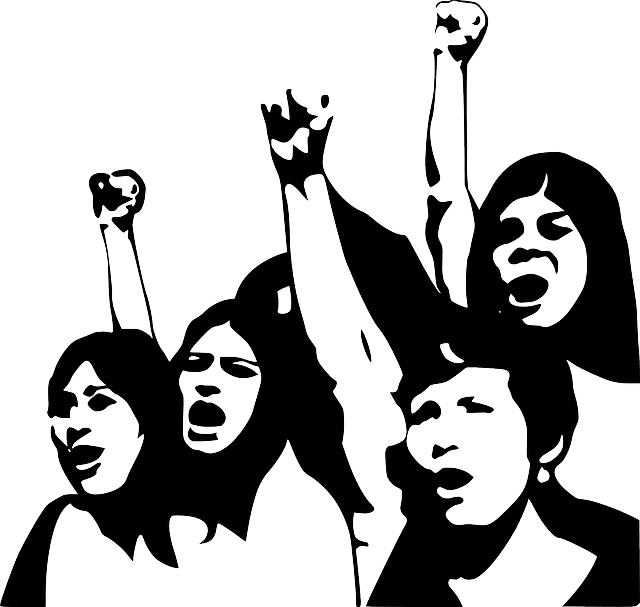It’s been a puzzle why our upper class is so enamored with woke progressivism. Now I think I know why.
I stumbled across a reference to “luxury beliefs” and delved into the concept. It goes something like this: Traditionally, elites signaled their social status by means of their possessions–how they dressed, where they lived, what kind of car they drove, and the luxury brands they flaunted. But today, when some of the richest corporate leaders just wear jeans and t-shirts and where our consumerist economy has given the middle class pretty-nice houses, pretty-nice cars, and access to luxury brands, the elite need other status symbols.
Those new status symbols are beliefs, which elevate them over the vulgar masses and enable members of the elite to identify each other.
British academic Matthew Goodwin has written a book on the subject: Values, Voice and Virtue: The New British Politics. He explains the concept in the UK publication The Daily Mail, referring specifically to British politics and the issue of immigration, which may be an even bigger problem for Western Europe than it is for the United States.
One of the concepts I cover in the book is that of ‘luxury beliefs’ –defined as ideas or values that confer status on the wealthy, but are not fully embraced or practised by them. The influence of ‘luxury beliefs’ as a means of winning social esteem has been charted by a number of academics, led by Rob Henderson, formerly of Cambridge University. Their fascinating research shows that in the past, members of the old elite derived their sense of status from physical manifestations of wealth, such as fine clothes, jewellery, foreign travel, servants, private carriages and large properties. But today, with prosperity spread across society, such ostentatious displays of riches have less significance. So, instead, the quest for social status now focuses more on ‘cultural capital’ than ‘economic capital’.
For the sophisticated, urban-dwelling, university-educated class that is overwhelmingly in the ascendancy across the media, the civil service, public management, quangoland [Brit. slang for nonprofits], the voluntary sector and the arts, a certain set of fashionable beliefs has become the new signifier of a higher rank in society.
Adherence to the values of the progressive orthodoxy is now the surest way to win acceptance into the elite and gain applause from its other members.
These luxury beliefs include gender fluidity, being soft on crime, wanting open borders, and critical race theory. We could add here in the U.S. feminism, LGBTQ advocacy, abortion, and woke intersectionality.
If our wealthy elite advocated traditional Marxism, they would be advocating their own liquidation. But today’s post-Marxism, with focuses on non-economic kinds of oppression between different kinds of identity groups, poses no such danger. Indeed, Goodwin points out that “‘luxury beliefs’ impose few costs on those who espouse them – even though the price paid by everyone else can be heavy.”
He gives the example of mass immigration. “The affluent Left loves to trumpet its commitment to open borders, ‘safe routes’ for asylum-seekers and multiculturalism as a badge of moral superiority, while portraying opponents of uncontrolled immigration as xenophobes.”
“But as research shows, the wealthy elitists are the least likely to suffer the financial and social costs of surging mass immigration.
They don’t have to compete with mainly low-skilled migrants for jobs and housing.
They don’t live in deprived neighbourhoods where rapid demographic change is eroding social solidarity and mutual trust.
The truth is that it is the working-class, the non-graduate majority, who are most likely to see their pay cut or have their rents pushed up by accelerating demand.
Goodwin quotes Home Secretary Suella Braverman (an African-Indian), a Conservative who has raised the issue of “luxury beliefs” in the Labour Party: “The migrants won’t be taking their jobs. In fact, they are likely to have them mowing their lawns or cleaning their homes.”
Goodwin gives other examples, which apply also in the United States.
Residents of disadvantaged housing estates, not those of gated communities, suffer most from the elite’s ‘luxury belief’ that criminals are actually victims of society who need support rather than punishment.
Meanwhile, women prisoners are the ones in danger from the grotesque belief that a double rapist with a penis should be housed in a women’s jail because he ‘identifies’ as a woman.
“Luxury beliefs” also helps account for the paradox that the wealthy, affluent, well-educated class tends to be in favor of the sexual revolution, single-parenthood, and non-traditional family structures; and yet they themselves have the highest rate of marriage and of two-parent families of any other demographic. “Once again, it is the working-class, non-graduate majority who are the most likely to suffer the effects of the breakdown in family values that the new elite condones but rarely practices.”
Here is another good piece on the subject, this one by Rob Henderson, the scholar Goodwin references.
This is not to say that these beliefs aren’t sincerely held, just that they have become status markers, both for those in our elite class and those who aspire to join it. They are part of the cultural air they breathe, part of their “social imaginary,” so that any contrary beliefs are practically unthinkable.
Image by OpenClipart-Vectors from Pixabay












